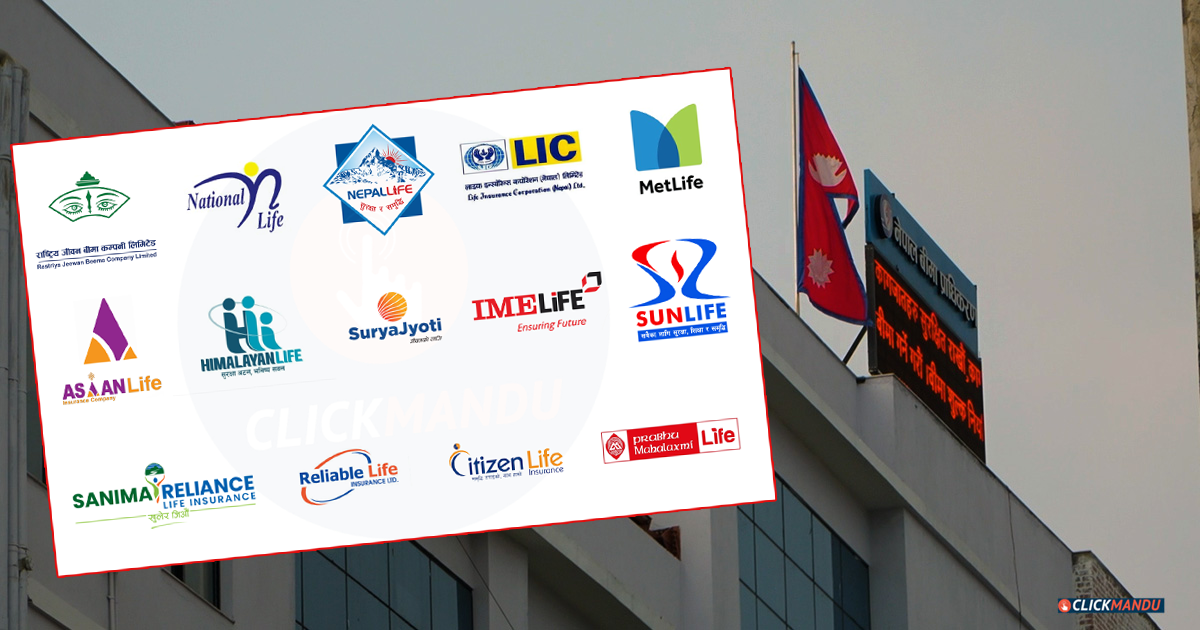Kathmandu: After uncovering a disturbing scale of illegal “cash back” practices—where customers receive commissions for purchasing policies—in non-life insurance companies, the Nepal Insurance Authority is now turning its attention to the life insurance sector.
The move comes amid increasing concerns that similar unlawful activities may be occurring in the life insurance business as well.
Following a wave of complaints that non-life insurance companies were offering illicit cash incentives to policy buyers, the Insurance Authority recently conducted on-site inspections at 14 non-life insurers. The inspection revealed widespread and large-scale violations involving cash back schemes, prompting the regulator to prepare for similar scrutiny of life insurers.
According to a source at the Authority, “During the monitoring of non-life insurance firms, it became clear that the entire insurance business is being undermined due to the cash back practice. We hadn’t anticipated such massive illegal conduct happening behind the scenes. After seeing this in non-life, it’s no longer an option to stay quiet about the life sector.”
Complaints suggest that the life insurance industry is also plagued by illicit cash backs—allegedly funneled through dummy agents. In contrast to the non-life sector, where cash backs directly reach the insured, in life insurance, the money is believed to be circulated internally among employees, under the guise of agent payments and other expenses.
The Insurance Authority suspects that life insurers often establish fake agents to whom expenses are falsely attributed. “The entire business model is being manipulated via these dummy agents,” the source said. “We’re planning to start the supervision of life insurance companies within 15 August, with a focus on these malpractices.”
According to regulatory provisions, agents are allowed to receive a fixed percentage as commission for bringing in new business. However, some companies lure clients and agents by promising additional percentages as cash back—an illegal practice. This not only attracts clients to certain companies under false pretenses but also distorts market competition.
To mask such cash backs, many life insurers inflate surveyor fees, show false salary payments to non-existent employees, or misclassify expenses under promotional or management costs. External audits suggest that life insurers are using these tactics to justify transferring large sums as part of the cash back scheme.
The Insurance Authority now fears that the same unhealthy trends seen in non-life insurance are also prevalent in life insurance. Hence, the Authority plans to launch in-depth supervision focusing especially on the dummy agent system, while also examining other possible malpractices.
Regulatory guidelines issued in 2023 explicitly prohibit insurers from offering any kind of discount, concession, or waiver on policy premiums. However, the directive does allow a maximum 5 percent discount if the insurance is sold directly (without agents), or an amount equivalent to the agent’s commission if an agent is involved.
Despite this, the practice of cash back is not mentioned or envisioned in any of the regulations, making it unequivocally illegal and a form of financial misconduct, according to the Authority. The inspection of non-life insurers revealed that companies had been producing fake bills, listing phantom employees, and inflating surveyor fees—all to justify the illegal disbursement of funds.
To deliver these illegal cash backs, companies would classify the amounts under guest entertainment, promotional events, or inflated claim settlements made in collusion with the policyholder. They also created ghost employees and forged documents with vendors to move money under the radar.
With these findings, the Authority believes similar schemes are likely present in life insurance companies as well. The real picture, however, will emerge only after on-the-ground inspections are completed.
Complaints about such illegal activities are frequent, and many trace the root cause to unhealthy competition among insurers. In an effort to increase business and attract more clients, companies often engage in unethical behavior. The problem is worsened by the perception that the regulator does not take sufficient punitive action or make infractions public.
One notable case discovered during recent inspections was that of a national insurance company which failed to re-insure policies, thereby putting citizen investments at risk—a serious breach of insurance norms.
Such instances underscore the regulatory weaknesses of the Insurance Authority. However, a senior official defended the regulator’s actions: “The Authority is monitoring and penalizing misconduct across the sector. Just because we don’t publicize every action doesn’t mean we’re inactive.”



Comment Here